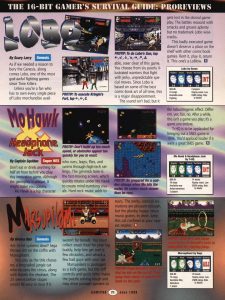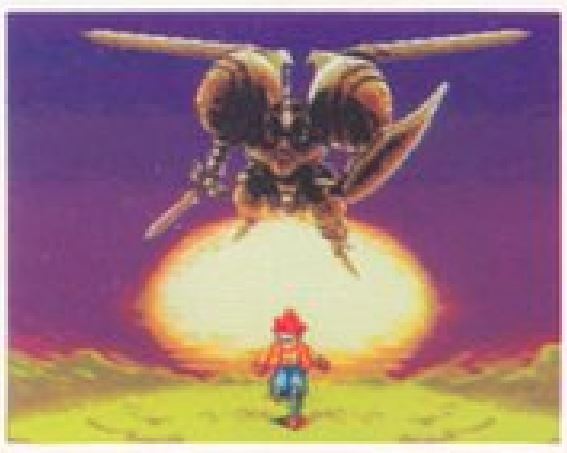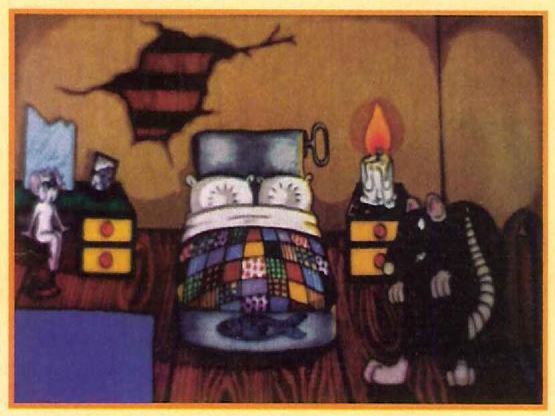Lobo is a cancelled fighting game published by Ocean Software and developed by Ocean of America, Inc. for the Genesis/MegaDrive version, and High Performance Games for the Super NES. It was settled up in the DC Comics’ LOBO universe and planned to be released in 1996.
The game used pre-rendered sprites for characters and background created with Silicon Graphics, similar to games such as Killer Instinct and Donkey Kong Country, and was mentionned in numerous previews from video game magazines, most of them were less than enthusiastic regarding the quality of the title. For instance, in issue #083 of Gamepro from June 1996, journalist Scary Larry wrote for the Genesis/MegaDrive version this:
As if we needed a reason to bury the Genesis, along comes Lobo, one of the most god-awful fighting games since Time Killers. Unless you’re a fan who has to own every single piece of Lobo merchandise available, steer clear of this game. You choose from six poorly illustrated warriors that fight with jerky, unpredictable special moves. Since Lobo is based on some of the best comic-book art of all time, this is a major disappointment. The sound isn’t bad, but it gets lost in the dismal gameplay. The battles resounds with smacks and groans aplenty but no trademark Lobo wisecracks. This badly executed game doesn’t deserve a place on the shelf with other comic-book games. Rent it, play it, return it. This one’s a LoBlow.
To this day, it was never made clear why Lobo was cancelled. Some could speculate that for a very late release for the now-dying 16-bits era, and with poor review like this one, Ocean deemed it wasn’t worth to release it, and decided to pull the plug. But it also seems that the project went through development hell: as we can read on SNESCentral, John Lomax, former artist at Ocean Software, indicated that the game initially began development in the main office of Ocean, based in Manchester, and not in the american office that was established in San José, California:
I worked on it for about a month before moving projects. It was originally going to be a Street Fighter-style beat ’em up, and I did work on background art for it, but the powers that be decided it would be better to give it to Ocean America to work on, so I don’t know if it ever came out, (…)
Another story, this time from Alexander Ehrath, who was High Performance Games’ sole programmer for the SNES version, explained in January 2022 that the game was initially coded by Park Place Productions before Ocean America took over the project internally as all the money given to Park Place was spent without finishing the game. This anecdote can be found here.
In 2009, a prototype of the Genesis/MegaDrive version was found by the SegaSaturno community and they released it with the help of Hidden Palace. The SNES one was found in 2014 with the source code available since 2016.
Games based on DC Comics‘ franchises seems to have a lot of trouble back in the 90’s. Alongside this title, another SNES game based on Green Lantern was in development at Ocean Software and was cancelled after numerous setbacks by DC higher-ups. We can also mentionned that around 2003, another Lobo game, this time made by Kemco USA for the Playstation 2, Xbox and GameCube systems was planned before being canceled with, to this day, still no information about how far the game went into development.
Images:
Videos:



